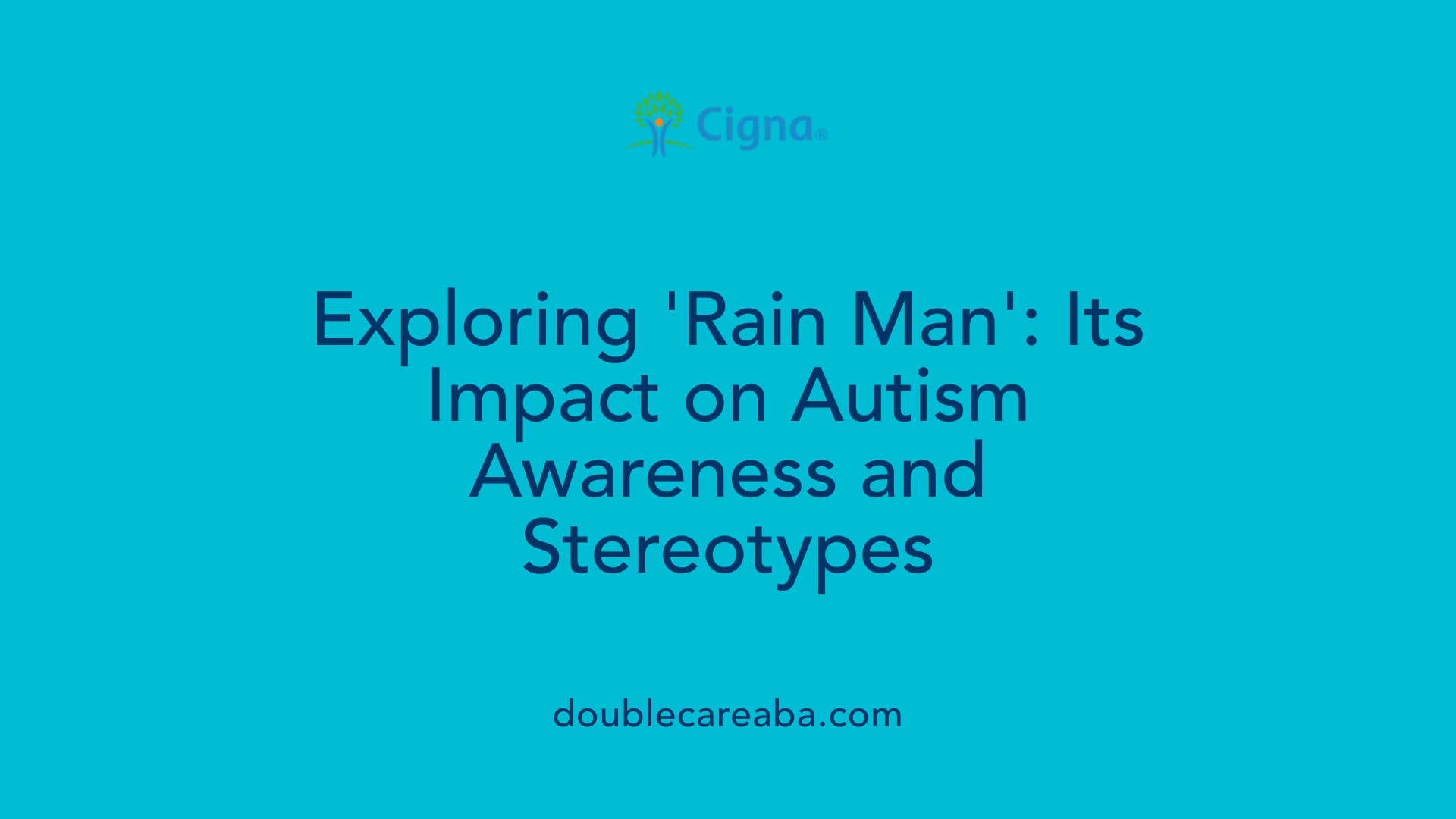Understanding the Speculation Around Tom Cruise and Autism
The question 'Is Tom Cruise autistic?' has garnered attention amid ongoing debates and discussions about his behavior, public appearances, and roles in film. While fans and critics often analyze celebrities for clues about their personal lives, it is crucial to rely on verified information. This article explores the available facts, the portrayal of autism in media, and the distinctions necessary to understand whether Tom Cruise exhibits traits associated with autism.
Tom Cruise's Notable Film Career Highlights

What does Claudia Mazzucco say about her understanding of autism and how it relates to her thinking style?
Claudia Mazzucco, a renowned expert on the autism spectrum, shares her perspective that her primary mode of thinking is through mental images. She emphasizes that these images often operate independently of words, which resonates with her understanding of autism. Mazzucco believes that many autistic individuals process information visually and that this can be a fundamental way they navigate the world.
How does Mazzucco relate her experience to famous thinkers like Einstein?
Mazzucco describes Albert Einstein as a vivid example of a visual thinker who used imagery extensively in his mental processes. Retrospective diagnoses by some social media sources suggest Einstein may have been on the autism spectrum, given his intense focus on visual thinking and his reliance on mental images. Mazzucco also notes that Einstein used external tools such as music to enhance his cognition, indicating that external aids can be instrumental in the thinking process.
What can we learn from the portrayal of Raymond in 'Rain Man' and its relation to real-life savants?
The character of Raymond Babbitt in 'Rain Man' is a portrayal of an autistic savant, equipped with extraordinary recall and complex calculation abilities. Based on real individuals like Kim Peek and Bill Sackter, Raymond's character is depicted with traits such as rituals, obsession with sameness, and social difficulties—hallmarks of high-functioning autism. Dustin Hoffman’s Oscar-winning performance was praised for its authenticity and played a significant role in raising awareness about autism.
What role did 'Rain Man' play in public awareness and understanding of autism?
'Rain Man' not only became a critical and commercial success, grossing approximately $354 million worldwide, but it also marked a turning point in how society perceives autism. As the only film to win both the Berlin International Film Festival’s top award and the Oscar for Best Picture in the same year, it reached a global audience. Its depiction of autism was influential, increasing diagnosis rates and fostering greater empathy, although some critics argue that it also reinforced stereotypes.
Are all autistic individuals savants?
No, only about 10% of autistic individuals are considered savants. These individuals often exhibit remarkable skills such as extraordinary memory, rapid calculation, or intense memorization. The film 'Rain Man' accurately reflects some of these abilities, although the level of skill varies considerably among savants. Additionally, savant syndrome can occur in other conditions like intellectual disabilities, but it most notably co-occurs with autism.
How does the film present the biological basis of autism?
'Rain Man' depicts autism as a biological disorder rather than a psychological one, challenging outdated theories such as the now-discredited refrigerator mother hypothesis. The film’s portrayal emphasizes that autism has a neurological basis, which has helped dispel misconceptions and foster a more accurate understanding of the condition.
| Aspect | Details | Additional Notes |
|---|---|---|
| Main Character in 'Rain Man' | Raymond Babbitt, an autistic savant | Based on Kim Peek and Bill Sackter |
| Performance Recognition | Dustin Hoffman won the Academy Award for Best Actor | Praised for realistic portrayal of autism |
| Impact on Society | Elevated awareness and understanding of autism | Led to increased diagnosis and support |
| Common Traits | Rituals, obsession with sameness, social difficulties | Represents high-functioning autism |
| Stereotype Risks | Potential reinforcement of misconceptions | Criticized for simplistic portrayal |
Through films like 'Rain Man,' discussions about autism and savant abilities have expanded, although it remains vital to recognize the diversity within the spectrum.
Tom Cruise's Current and Future Professional Activities
What is Tom Cruise's current or upcoming professional activity?
In 2024, Tom Cruise remains one of Hollywood's most active and dedicated actors, with a busy schedule of international events and film projects. Recently, he played a key role in the closing ceremony of the Paris 2024 Olympics, showcasing his daring stunt skills.
During the event, Cruise performed a series of high-risk sequences, including rappelling from the Stade de France and participating in the ceremonial handoff of the Olympic flag to Los Angeles, the next host city. He also filmed two major stunts in Paris and Los Angeles, demonstrating his commitment to physically demanding, theatrical projects.
Apart from his Olympic involvement, Cruise has been involved in filming his upcoming 'Mission: Impossible' installment in London. Reportedly, he has funded some of the production himself to ensure the quality and safety of the scenes.
Overall, Tom Cruise's 2024 activities show his continual drive for thrilling performances and his engagement with global audiences. He's balancing international diplomacy at the Olympics with his dedication to developing blockbuster films, staying at the forefront of the industry.
| Activity | Location | Description |
|---|---|---|
| Olympic Closing Ceremony | Paris | Performed stunts, participated in Olympic rituals |
| Film Production | London | Filming 'Mission: Impossible' |
| Upcoming Promotions | Various | Setting the stage for future film releases |
His ongoing dedication to spectacular stunts and international events cements his status as a leading figure in both Hollywood and worldwide entertainment.
Public Controversies and Personal Life Insights

Has Tom Cruise ever been involved in any public controversies related to family or personal matters?
Tom Cruise has experienced several public disputes and controversies involving his personal life over the years. One of the most notable incidents occurred in 2005 during an appearance on the 'Today' show. During the interview, he passionately criticized psychiatry and the use of medication for postpartum depression, which sparked widespread media coverage and public debate about his views.
His long-time affiliation with the Church of Scientology has also drawn criticism. Several former members, including actress Leah Remini, have spoken out against what they describe as the church's influence on Cruise and its impact on his personal and professional life. These revelations have contributed to a complex public image centered around religious and social controversies.
Additionally, Cruise's personal relationships have often been in the spotlight. His highly publicized breakup with actress Katie Holmes in 2012, and the subsequent limited public interaction with their daughter Suri, have raised questions and concern among fans and media alike. Many have speculated about the reasons behind his relative absence from his daughter's life in the public eye.
In recent years, Cruise has maintained a more private approach to his personal affairs, but past disputes continue to influence public perceptions. His openness about his beliefs and experiences, coupled with the media's focus on his personal relationships, ensures that his private life remains a topic of interest.
| Controversy Area | Details | Impact |
|---|---|---|
| Public remarks on psychiatry | Criticized medication use in postpartum depression during 2005 TV interview | Sparked global media attention, public debate about mental health |
| Relationship with Scientology | Accusations from ex-members about influence and practices of the church | Contributed to debates over religious influence and celebrity |
| Family and relationships | Estranged from daughter Suri, high-profile breakup with Katie Holmes | Questioning about personal relationships, public concern |
What further information can I find about Tom Cruise’s personal life controversies?
Searching for 'Tom Cruise personal life controversies' will reveal detailed articles, interviews, and analyses on his public disputes, religious affiliations, and relationships, providing a comprehensive picture of his personal life highlights and challenges.
Health and Physical Fitness Regimen

What does 'Rain Man' reveal about autism and savant syndrome?
The film 'Rain Man' has played a significant role in shaping public understanding of autism. It features Raymond Babbitt, an autistic savant with remarkable memory and calculation skills. Based on real-life individuals like Kim Peek, the character showcases typical savant abilities, such as extraordinary recall and complex calculations.
Dustin Hoffman’s portrayal is praised for its authenticity and sensitivity, helping to move autism from misconceptions like the outdated 'refrigerator mother' theory towards a biological understanding. The film highlights traits such as strict rituals, obsession with sameness, and social difficulties, which are associated with high-functioning autism.
While 'Rain Man' was instrumental in raising awareness, it also sparked debates about stereotypes. Not all autistic people are savants; only about 10% exhibit such specialized skills. Moreover, the portrayal reflects only one presentation of autism on a vast spectrum.
The film's influence extended beyond entertainment, accounting for increased autism diagnosis and understanding worldwide. Its success was not just commercial—grossing around $354 million—but also cultural, being the only film to win both the Berlin International Film Festival’s top award and the Academy Award for Best Picture in the same year.
How do insights from experts like Mazzucco deepen our understanding?
Claudia Mazzucco, an autism researcher and savant, emphasizes the importance of visualization and concentration in savant skills. She often relates her primary mode of thinking—mental images— to her understanding of autism and contrasts this with Einstein’s visualization-based thinking, which may have been aided by external tools like music.
Mazzucco notes that individuals like Einstein, who are retrospectively diagnosed with autism, relied heavily on imagery and external aids to enhance cognition. This highlights how different thinkers use unique strategies, often beyond words, which is or can be characteristic of autistic thinking.
How does this understanding influence perceptions of mental processes?
Recognizing the diverse ways in which autistic and highly visual thinkers process information can help foster respect and inclusivity. It shows that extraordinary skills are rooted in neurobiological phenomena and are often based on real, observable abilities, including rapid memorization and lightning calculations.
In summary, 'Rain Man' not only depicted autism with considerable accuracy but also contributed to a broader appreciation of the neurodiversity spectrum, encouraging more nuanced and respectful portrayals and perceptions of autistic individuals and savant skills.
Understanding Autism Spectrum Disorder and Media Portrayals
What is known about Tom Cruise's potential autism or traits associated with autism?
There is no publicly confirmed information indicating that Tom Cruise has autism or exhibits traits associated with it. Discussions about autism spectrum disorder (ASD), including its depiction in media like 'Rain Man', serve to enhance understanding of this complex condition.
Autism is a neurological spectrum, meaning it can present very differently across individuals. It encompasses a wide range of behaviors, skills, and challenges. Many people with autism are articulate, independent, and possess unique talents—traits that were often oversimplified or stereotyped in earlier portrayals.
The portrayal of Raymond in 'Rain Man' is a case of depicting a character with autism and Savant syndrome, a combination that occurs in about 10% of autistic individuals. However, this is only one presentation within the broad spectrum. It is important to avoid assuming all autistic individuals fit this stereotype.
Regarding Tom Cruise specifically, no verified medical diagnosis or credible evidence links him to autism. Public figures’ private health information is typically confidential, and without consent or official disclosure, any claims about his autism status remain purely speculative.
Therefore, any assertion about Tom Cruise's autism traits without evidence is unfounded. It is more constructive to understand that autism manifests uniquely in each person and that media portrayals like 'Rain Man' are just one aspect of this diverse spectrum.
By differentiating between typical portrayals and reality, we foster a more accurate and respectful perception of autism, promoting acceptance and inclusion.
Rain Man and Its Cultural Significance

How has the film Rain Man influenced public perception of autism?
The film 'Rain Man,' released in 1988, had a profound effect on how the public perceives autism and savant syndrome. Its portrayal of Raymond Babbitt, played convincingly by Dustin Hoffman, introduced many viewers to the concept of an autistic savant — someone with extraordinary memorization, calculation skills, and recall abilities.
One of the film’s major contributions was raising awareness about autism as a biological condition rather than a psychological or psychological deficit, debunking outdated concepts like the now-discredited 'refrigerator mother' theory. It showcased traits of high-functioning autism, including rituals, obsessiveness, and difficulties with social affection.
Although the film helped increase recognition and diagnosis of autism worldwide, it also simplified and stereotyped the spectrum. Only about 10% of autistic people have savant skills, yet the movie emphasized these extraordinary abilities, which can lead to misconceptions.
The movie's critical and commercial success, along with accolades like the Best Picture Oscar, underscored its influence. Dr. Darold Treffert, an expert on savant syndrome, noted that 'Rain Man' played a significant role in raising awareness and understanding of autism for both the public and professionals.
In summary, while it fostered greater empathy and recognition of autism’s diversity, 'Rain Man' also contributed to stereotypical views, especially associating autism predominantly with savant skills. Its impact remains a milestone in autism awareness, inspiring more nuanced representations in the future.
Savant Syndrome: Real-life Phenomenon and Its Representation
What are the actual characteristics of savant skills?
Savant syndrome refers to extraordinary abilities in specific areas such as memory, calculation, or art, often found in individuals with developmental differences like autism. These skills are characterized by remarkable recall, rapid calculation, or artistic talent. The film 'Rain Man' depicts Raymond's astonishing memory and complex calculations, which are typical of many savants.
How prevalent are savant skills among the autistic population and other conditions?
Only about 10% of autistic individuals display savant abilities. These skills vary widely among those who have them. Savant syndrome can also appear in people with other conditions like mental retardation, but it is most commonly associated with autism. It’s important to note that not all autistic people are savants.
What are some examples of remarkable talents in savants?
Many savants exhibit skills that seem extraordinary, such as lightning-fast calculation, photographic memory, or advanced musical abilities. Kim Peek, a real-life inspiration for the character in 'Rain Man', was known for his encyclopedic memory. Other examples include individuals with exceptional artistic skills or the ability to memorize vast amounts of information instantly.
| Talent Type | Famous Example | Description | Origin of Phenomenon |
|---|---|---|---|
| Memory | Kim Peek | Could recall details from thousands of books and personal experiences | Autism, savant syndrome |
| Calculation | Raymond Babbitt | Performed complex calculations rapidly and accurately | Autism, savant syndrome |
| Artistic Skill | Various artistic savants | Creates detailed paintings or drawings from memory | Autism, savant syndrome |
Understanding savant syndrome helps demystify these extraordinary talents, showing they are real abilities rooted in neural differences, rather than mere myths or coincidence.
Summary: Distinguishing Facts from Misconceptions

What is the current understanding of Tom Cruise’s connection to autism?
There are no verified reports or credible diagnoses linking Tom Cruise to autism. Despite rumors and media speculation, Cruise has not publicly disclosed any medical condition confirming an autism diagnosis. It is important to differentiate between fictional portrayals or perceptions and actual medical diagnoses.
Why is credible diagnosis essential?
Accurate diagnoses are crucial for understanding autism as a neurodevelopmental condition. Only qualified healthcare professionals can confirm autism through comprehensive assessments. Public figures’ diagnoses, if any, are private and should not be assumed. This helps avoid spreading misinformation and stereotypes.
How does media influence perceptions of autism?
Films like ‘Rain Man’ have significantly shaped public understanding of autism. The movie portrayed a character with savant skills, which is only present in about 10% of autistic people. While ‘Rain Man’ increased awareness, it also contributed to stereotypes that autism always involves extraordinary abilities, which is not accurate for the majority.
Why is fact-checking celebrities’ claims about autism important?
Celebrity disclosures about autism, or claims of being autistic, should be verified by credible sources. Misrepresentation can reinforce misconceptions and affect how society perceives individuals on the spectrum. Responsible reporting and critical evaluation of information aid in a more accurate understanding of autism.
| Aspect | Details | Additional Info |
|---|---|---|
| Celebrity autism claims | Often unverified or speculative | Illustrate importance of credible sources |
| Stereotypes | Overemphasis on savant skills | Reality: Most autistic people do not have extraordinary abilities |
| Media portrayal | Varies from accurate to stereotypical | Critical for shaping public perception |
Understanding these distinctions helps foster a more accurate and respectful view of autism, moving beyond misconceptions towards genuine awareness.
Final thoughts and clarifications
In summary, there is no verified evidence to suggest that Tom Cruise is autistic or exhibits traits associated with autism. The focus should remain on respecting personal privacy and acknowledging that autism is a complex spectrum, not reducible to stereotypes or media portrayals. The portrayal of autism in films like Rain Man has greatly increased awareness but should not be used as a basis for assumptions about individual celebrities. As the understanding of autism continues to evolve, it remains essential to rely on credible medical diagnoses rather than speculation.
References
- Tom Cruise, Albert Einstein, Temple Grandin, and Oliver ...
- Rain Man
- Rain Man, the Movie | Treffert Center
- Rain Man (1988)
- Rain Man and Autism
- A look back at the movie Rain Man and how our views of ...
- Mental Retardation – The Autism History Project
- How Tom Cruise Remains Youthful at 61, and How You ...
- How Tom Cruise's health was threatened by death-defying ...
- Tom Cruise Personal Life and Scientology













